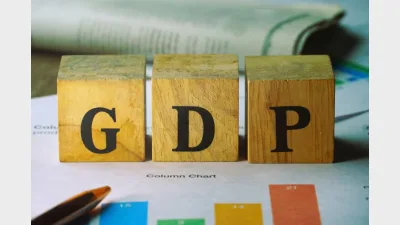Annual economic growth lowest since 1991-92



Australian gross domestic product (GDP) rose 0.2 per cent, seasonally adjusted, in the June quarter 2024 and by 1.5 per cent in the 2023-24 financial year, according to figures released by the Australian Bureau of Statistics (ABS) on Wednesday.
Economists broadly expected national accounts to show a real GDP increase of 0.2 per cent on the quarter, and an annual rate dip to 0.9 per cent.
“The Australian economy grew for the eleventh consecutive quarter, although growth slowed over the 2023-24 financial year," said Katherine Keenan, ABS head of national accounts.
“Excluding the COVID-19 pandemic period, annual financial year economic growth was the lowest since 1991-92 - the year that included the gradual recovery from the 1991 recession," Keenan said.
GDP per capita was down for the sixth consecutive quarter, falling 0.4 per cent.
Household spending fell 0.2 per cent, detracting 0.1 percentage points from GDP growth.
“Spending on many discretionary categories fell in the June quarter. This followed a relatively strong result in the March quarter, which included a number of sporting, gambling and music events.
“The strongest detractor from growth was transport services, particularly reduced air travel. This was the first fall for this series since the September 2021 quarter,” Ms Keenan said.
Government spending rose by 1.4 per cent, while total investment fell 0.1 per cent in the June quarter.
More to come.
Recommended for you
Superannuation industry bodies have warned the prudential regulator that some of the more rigid proposals in its Governa...
IFM has firmly opposed any push for publicly disclosing current valuations of private market assets, saying it would “damage the financial interests of investors” and reduce appetite for infrastructure and private business investment.
Subdued GDP figures have bolstered expectations that the RBA could cut rates sooner and, possibly more aggressively, market watchers say.
Australian institutional investors plan to keep their finger on the pulse of private markets, new data has shown, with local investors aiming to further expand allocations into the sector.








